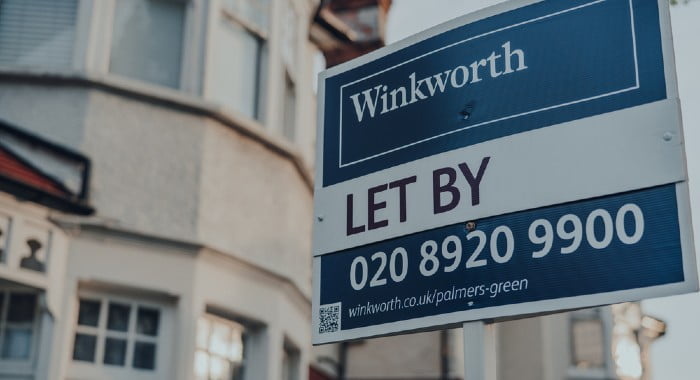14 November 2023 – Last week Charles III delivered the King’s Speech, for the first time in 70 years. And two of the 21 laws contained in the speech will directly impact on the housing market.
Last week, King Charles III opened the new session of parliament, setting out the priorities that Rishi Sunak’s government is focussing on the coming year.
The speech contained a range of pledges aimed at changing the country for the better. Although for many of these pledges, such as growing the economy, no details are given how this will be achieved.
The King’s Speech also included the introduction of 21 new laws that the government plans to pass through parliament in the coming year. Among these new pieces of legislation, two will directly impact on the housing market. They will affect both the sales and rental market.
The Renters Reform Bill is not new, and is one of the seven bills that have been carried over from last year. It has passed the second reading in the House of Commons and is expected to become law in spring 2024 at the earliest.
The Leasehold and Freehold Reform Bill is part of a wider package the government has created in an effort to make the housing system fairer.
King’s Speech Announced Ban On New Leashold Properties
Michael Gove, the Secretary for Levelling Up, Housing and Communities, has said before that he wants to phase out the leasehold system in England and Wales, which he called “feudal”.
One of the laws announced in the King’s Speech, the Leashold and Freehold Bill, aims at doing exactly that. Under the proposed law, all new houses in England and Wales will have to be sold as freehold.
However, flats aren’t covered, which means new flats can still be sold as leaseholds. To make the system fairer, the new legislation will also introduce a cap on all ground rents on existing leasehold properties.
The current standard contract lease extension of 90 years will be extended to 990 years. Under the new legislation, leaseholders won’t have to wait for two years until they can propose an extension to their lease.
The industry has broadly welcomed the proposed reform of the leasehold system. Especially the extension of the standard lease length is seen as a step in the right direction.
However, some have raised concerns that capping the ground rents could result in rising service charges. Others worry that the proposed changes haven’t been thought through properly, which could prevent them from delivering meaningful reform.
Renters Reform Bill To Give Better Protections To Tenants

It is no surprise that the Renters Reform Bill will be carried over from last year, as it has been widely expected to. The bill proposes, among other legislation, to abolish no-fault evictions, or section 21 evictions.
However, this is now not going to happen until court processes have been strengthened, according to the announcement in the speech. This is to protect landlords from delays when seeking to legitimately evict a tenant, for example for antisocial behaviour.
At the same time, the proposed bill strengthens the grounds for possession on the part of the landlord, which will enable landlords to evict tenants who breach their agreement or damage the property in just two weeks.
The new law also proposes an end to blanket bans on pets, people on benefits or with children. This is a change that is overdue and should have come in years ago.
As part of the new legislation, the government plans to create a Private Rented Sector Ombudsman to deal with disputes between renters and landlords. The creation of this new body aims at preventing disputes from going to court, which can be costly for both parties.
While many details are still unknown about the Renters Reform Bill, the government seemed to be keen to push it through in the next year. Some commentators are concerned what the impact of some of those measures will be on responsible landlords.
While we fully support its underlying purpose, in ensuring tenants can enjoy a safe and stable living environment, there’s a danger that legislating for rogue landlords can indirectly penalise responsible landlords, like those within our own community.
Jonathan Daines, Founder and CEO of lettingaproperty.com
While measures to protect tenants are welcomed by the industry, some have pointed out that this needs to be done in a way that doesn’t burden landlords unduly.
Our Opinion
Nothing in the King’s Speech regarding the housing market is new. The Renters Reform Bill was announced last year and is currently on its way through the parliamentary process.
Reform of the leasehold system has been something talked about by governments for years. And the actual details we know so far aren’t that impactful.
While no new houses can be sold as leaseholds any more, flats won’t be covered by the ban. This won’t make much of a difference. And current leaseholders won’t have heard much to help them.
Buying the freehold is the only way out of paying crippling ground rents. And that isn’t an option for many.
What is the most disappointing about the announcements, in our opinion, is that the government doesn’t seem to want to tackle the real issues the housing market is facing. The stamp duty system needs to be completely overhauled, as in its current state it’s not fit for purpose.
The lack of affordable housing needs sorting urgently. And the issue of affordability is keeping many young people from getting onto the housing ladder.
However, the government seemed to prefer to ignore all of these issues and instead re-announce old measures that won’t help solve the most pressing issues.




